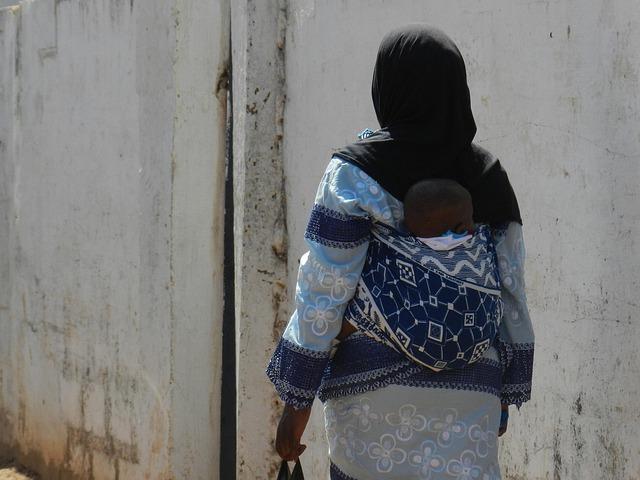In recent years, the Gambia has made meaningful strides in combating the deeply rooted practice of female genital mutilation (FGM), with the enactment of a law aimed at prohibiting this harmful tradition. The legislation, while a crucial step forward, represents only the beginning of a broader effort to protect women’s rights and promote gender equality within the nation. As highlighted in a recent report by the Center for Strategic & International Studies (CSIS), preserving this law is essential, but it must be accompanied by thorough strategies that address the societal, cultural, and economic factors that perpetuate FGM.This article explores the implications of the law, the challenges that lie ahead, and the urgent need for sustained advocacy and community engagement to effect lasting change in The Gambia and beyond.
Preserving the Legal Framework Against FGM in The Gambia
In The Gambia, the legal framework for prohibiting female genital mutilation (FGM) represents a significant stride toward safeguarding women’s and girls’ rights. Though, mere existence of legislation is insufficient for eradicating this harmful practice. To ensure that the laws translate into real-world protection, it is crucial to strengthen implementation thru rigorous monitoring and community engagement. This includes:
- Awareness campaigns targeting both rural and urban populations to educate about the dangers of FGM.
- Training law enforcement on the legal ramifications of FGM to ensure perpetrators are held accountable.
- Supporting advocacy groups that work directly with communities to shift cultural norms.
Moreover, collaboration between governmental bodies, non-governmental organizations, and international partners is essential for fostering a comprehensive approach. A well-coordinated effort could involve:
| Stakeholder | Role |
| Government | Formulate and enforce laws against FGM |
| NGOs | raise awareness and provide support services |
| Community Leaders | Influence local attitudes and practices |
| International Bodies | Offer technical and financial support |
By fostering these collaborations and ensuring that legal measures are not just symbolic, The Gambia can make meaningful progress in it’s fight against FGM, ultimately leading to the protection and empowerment of vulnerable populations.
Understanding the Socio-Cultural Drivers Behind FGM Practices

Female Genital Mutilation (FGM) persists in The Gambia due to a complex interplay of socio-cultural factors that uphold these practices. Many communities regard FGM as a rite of passage that signifies a girl’s transition into womanhood, embedding it deeply within their cultural identity. Such beliefs are often reinforced by peer pressure and the desire for social acceptance, where families implement FGM to align with community norms. Additionally, the perceived connections between FGM and increased marriageability and familial honor further entrench these practices, illustrating a strong link between tradition and societal expectations. Consequently, many women and girls face immense pressure to conform, making it increasingly tough to challenge these deeply held beliefs.
The role of religion and customary law also contributes to the perpetuation of FGM. While many proponents claim FGM is mandated by religious texts, this interpretation frequently lacks a broader theological consensus. Moreover, local leaders and elders often wield significant influence in sustaining FGM because they see it as integral to maintaining cultural heritage. Educational initiatives that debunk myths surrounding FGM, alongside efforts to reframe customary narratives, are crucial in changing the perception of FGM within these communities. Highlighting the health implications and human rights perspectives can foster a shift in understanding, encouraging dialog that gradually changes cultural norms. Strategies must focus on empowering community members to rethink the acceptance of FGM as a tradition, fostering environments in which girls grow up free from such practices.
Strengthening Community Engagement and Education Efforts

One of the critical pathways toward enhancing community involvement in safeguarding the anti-FGM law involves expanding local educational initiatives. By prioritizing awareness campaigns, it becomes possible to dismantle the deeply entrenched cultural narratives that surround female genital mutilation. Engaging with community leaders, educators, and healthcare providers can foster a more informed public who understands the implications of FGM, both socially and medically. Key strategies include:
- Workshops and training sessions for community leaders that outline the legal ramifications and health risks associated with FGM.
- School-based programs that educate children about bodily autonomy and the importance of legal protections.
- Partnerships with local NGOs to promote advocacy efforts tailored to specific communities.
In order to facilitate an effective dialogue, it is essential to implement feedback mechanisms that allow the community to voice its concerns and experiences. Such mechanisms can enhance trust and cooperation between local populations and advocacy organizations.Incorporating this feedback into ongoing educational efforts ensures that strategies remain relevant and resonate with participants. A proposed framework for community education programs might include:
| Program Element | Description | Target Audience |
|---|---|---|
| Awareness Campaigns | Community-driven initiatives using local media and gatherings. | General public |
| training for Healthcare Workers | workshops on cultural sensitivity and medical implications of FGM. | Healthcare professionals |
| Educational workshops | Sessions for parents focused on legal protections and children’s rights. | Parents and guardians |
Enhancing Support Systems for Survivors of FGM

Supporting survivors of female genital mutilation (FGM) requires a multifaceted approach that goes beyond legislative measures. To create a robust support system, it is critical to focus on the following key areas:
- Psychosocial Support: Establishing access to trained counselors who understand the trauma associated with FGM can provide essential healing resources for survivors.
- Legal Assistance: Survivors must have access to legal advocacy to navigate the complexities of claiming their rights and seeking justice for the abuses they have faced.
- Healthcare Access: Continuous medical care and rehabilitation services are essential to address the physical and psychological repercussions of FGM.
- Awareness programs: Community outreach initiatives can educate the public about the implications of FGM and reduce stigma, encouraging a supportive environment for survivors.
Investment in training local organizations and healthcare providers is vital to establish a culturally sensitive support framework.Countries like The Gambia should also consider:
| Strategic Actions | Expected Outcomes |
|---|---|
| Implementing training workshops for healthcare professionals | Improved understanding of survivor needs and trauma-informed care approaches |
| Creating survivor networks to share experiences | Empowerment and reduced sense of isolation among survivors |
| Engaging local leaders in advocacy efforts | Stronger community support and reduction in FGM prevalence |
Collaborating with Regional and International Partners for Effective Advocacy

Engaging with regional and international partners is crucial for the effective promotion of anti-FGM advocacy in The Gambia. By establishing alliances with organizations that share a commitment to human rights and women’s empowerment, local activists can amplify their message and drive significant change. These collaborations can take various forms, including:
- Joint Campaigns: Launching campaigns that resonate across borders to raise awareness about the harmful effects of FGM.
- Resource Sharing: Leveraging expertise, data, and best practices from accomplished initiatives in other countries.
- Capacity Building: Conducting training workshops that equip local advocates with critical skills and knowledge.
Additionally, a structured approach to partnerships can enhance the impact of advocacy efforts.Utilizing a framework to evaluate and implement collaborative projects ensures that all stakeholders maintain a shared purpose and clear objectives. A sample framework might include:
| Partnership Element | Purpose | Expected Outcome |
|---|---|---|
| Networking | Build connections with like-minded organizations | Increased outreach and support |
| Policy Dialogues | Engage in discussions with government and NGOs | Stronger policy frameworks |
| Media Engagement | Raise public awareness through various media channels | Heightened public discourse and support |
Implementing Holistic Approaches to gender Equality and Women’s Rights

The fight for gender equality and the promotion of women’s rights in The Gambia necessitates a holistic approach that transcends the mere preservation of existing legislation against Female Genital Mutilation (FGM). This extends to the establishment of comprehensive support systems that empower women at both individual and community levels. Key strategies should include:
- Education and awareness campaigns that inform communities about the health risks associated with FGM and the legal frameworks protecting women’s rights.
- Economic empowerment programs designed to provide women with vocational training and financial resources, enabling them to assert their autonomy.
- Collaboration with grassroots organizations that advocate for women’s rights and provide crucial support networks for survivors of FGM.
Moreover, engaging men and boys as allies in this movement is essential to challenge and change societal norms. Initiatives aimed at redefining masculinity and involving men in discussions about gender equality can considerably shift perceptions and behaviors. A structured approach might include:
| Initiative | Objective |
|---|---|
| Men as Allies Workshops | Educate men on the impacts of FGM and gender-based violence. |
| Community Dialogue Sessions | Create platforms for open discussion about gender norms. |
| Role Model Programs | Highlight positive male figures who promote gender equality. |
Such multi-faceted strategies stand to make a meaningful impact in fostering an environment that promotes gender equality, dismantles harmful practices like FGM, and nurtures a culture of respect and empowerment for women.
Future Outlook
the potential repeal of The Gambia’s Female Genital Mutilation (FGM) law presents significant challenges not only to the protection of women’s rights but also to the country’s broader commitment to gender equality and public health. While the preservation of this law is a crucial first step, it is imperative that stakeholders engage in comprehensive efforts to address the cultural and societal factors that sustain the practice of FGM.Advocacy, education, and community-led initiatives will be essential in changing perceptions and ultimately eliminating this harmful tradition. As The Gambia navigates these complex issues, it will be crucial for both national and international communities to remain vigilant and supportive, ensuring that the rights and well-being of women and girls are prioritized in the ongoing dialogue surrounding this critical issue. The fight against FGM in The Gambia is far from over; it necessitates a sustained commitment to both legal safeguards and transformative social change.







